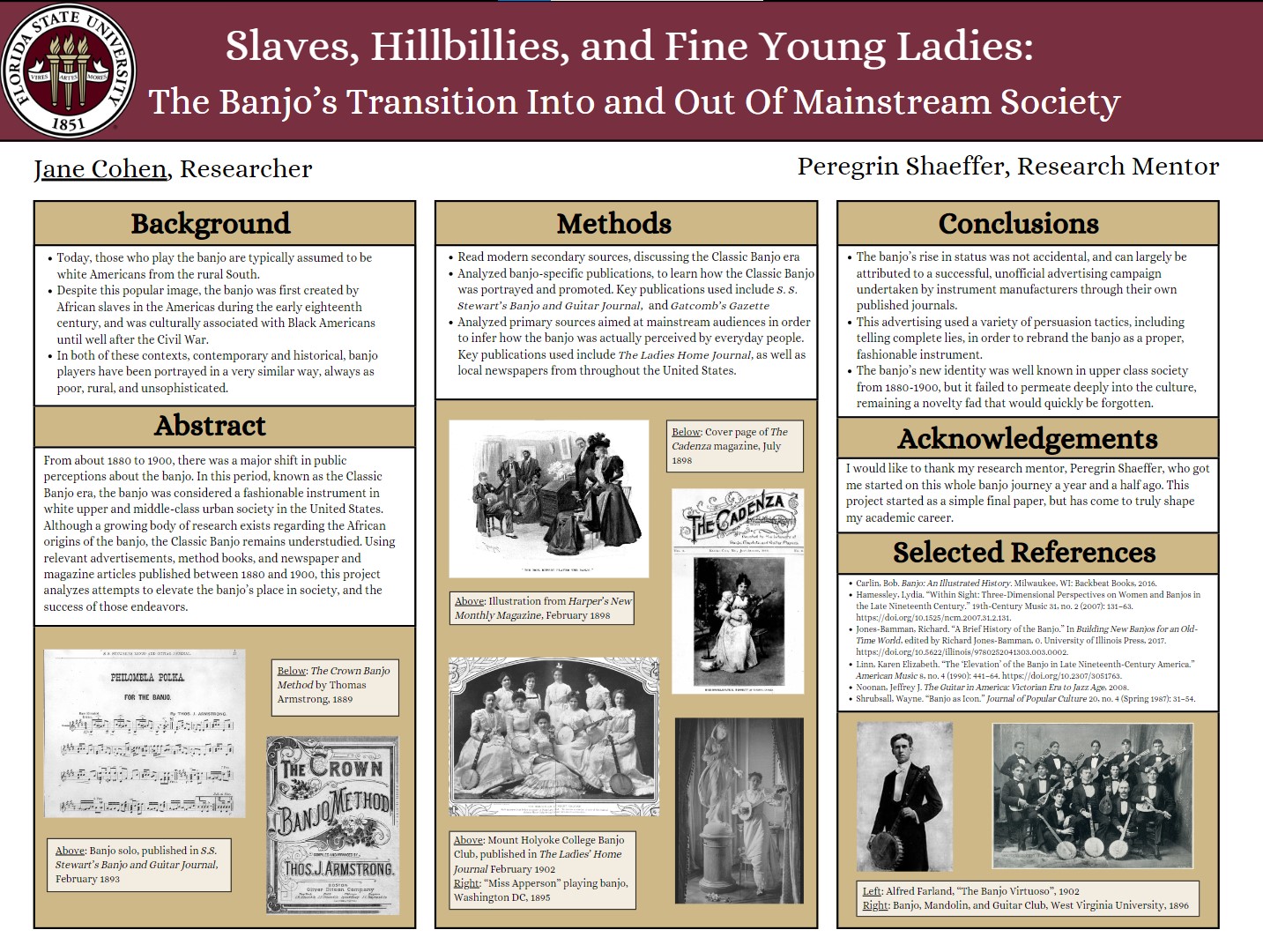Research Symposium
24th annual Undergraduate Research Symposium, April 3, 2024
Jane Cohen Poster Session 3: 1:30 pm - 2:30 pm /111

BIO
Jane Cohen is a second year student at FSU, double majoring in music and history. A Tallahassee native, she is interested in learning about the past through historical newspapers and magazines, specifically focusing on nineteenth/early twentieth century popular culture. After graduation, she hopes to work in some sort of research, archival, or educational capacity. Jane is a member of Tau Beta Sigma Honorary Band Sorority, and the Windjmamers Circus Music Historical Society.
Slaves, Hillbillies, and Fine Young Ladies: The Banjo's Transition Into and Out Of Mainstream Society
Authors: Jane Cohen, Peregrin ShaefferStudent Major: Music and History
Mentor: Peregrin Shaeffer
Mentor's Department: Musicology Mentor's College: Music Co-Presenters:
Abstract
Today, those who play the banjo are typically assumed to be white Americans from the rural South. Despite this popular image, the banjo was first created by African slaves in the Americas during the early eighteenth century, and was culturally associated with Black Americans until well after the Civil War. In both of these contexts, contemporary and historical, banjo players have been portrayed in a very similar way, always as poor, rural, and unsophisticated. However, from about 1880 to 1900, there was a major shift in these perceptions. In this period, known as the Classic Banjo era, the banjo was considered a fashionable instrument in white upper and middle-class urban society in the United States. Although a growing body of research exists regarding the African origins of the banjo, the Classic Banjo remains understudied. Using relevant advertisements, method books, and newspaper and magazine articles published between 1880 and 1900, this project analyzes attempts to elevate the banjo’s place in society, and the success of those endeavors. This study finds that the banjo’s rise in status was not accidental, and can largely be attributed to a successful advertising campaign undertaken by instrument manufacturers. The banjo’s new identity was well known in upper class society during this time, but it failed to permeate deeply into the culture, remaining a novelty fad that would quickly be forgotten.
Keywords: music, history, magazines, 19th century


